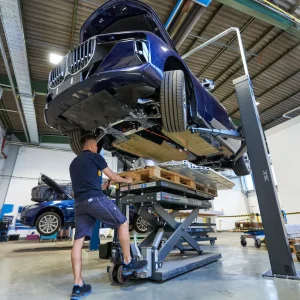Read most company car policies and driver guides and they’re mostly packed with instructions and directives.
All drivers must conduct weekly vehicle checks including tyres, oil, washer fluid, lights etc.
Drivers must not use their mobile phone whilst driving. Any large objects should be stored safely in the boot. The list goes on….
To a certain extent it reminds me of a nagging parent and their child. You must keep your room tidy. You must clean your teeth. You must make your bed.
Eventually, all these instructions just become an irritating “noise” and you can hear both kids and drivers saying, “Oh – there you go again nagging me…yeah, yeah, whatever!”
But the important point here is that if you just bark orders at people, a number of things can potentially happen. They will stop listening in the end, classing your instructions as meaningless and fussy.
They will stop thinking for themselves. And they will treat everything you ask of them as being very negative.
When we first launched our online driver risk assessment system almost a decade ago, we wrongly assumed that drivers would appreciate the importance of being assessed.
It wasn’t long before feedback told us that many drivers questioned why they had to do the assessment at all, what the relevance of it was, and the bottom line was they saw it as yet another company directive that got in the way of them getting on with their job.
In response to this we added a video clip at the start of the assessment, explaining why it was important and, more significantly, selling the benefits.
That small change led to far better feedback – drivers appreciating why the assessment had been sent to them to complete, buying into the process better, and rating it as more enjoyable and rewarding within the driver feedback section at the end.
As Health and Safety laws tighten in the UK, and with the whole arena of duty of care here to stay and grow in profile, it’s going to be a hard old slog if we have to drag drivers along kicking and screaming.
Far better to adopt a stance of selling the idea to them, promoting the benefits and educating them as opposed to just telling them it’s something they’ve got to do. So, next time you put out a driver communication, make sure you promote the benefits.
Because like a child who willingly tidies their room – if drivers understand why risk management is important, and why their cooperation will benefit themselves and the company, you’ve saved yourself a great deal of effort by removing the constant chasing, cajoling and reminders.
Follow BusinessCar on TWITTER.





